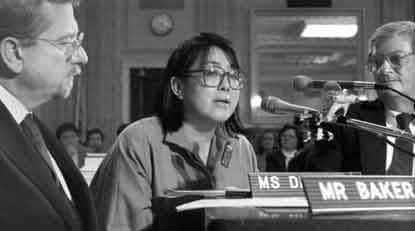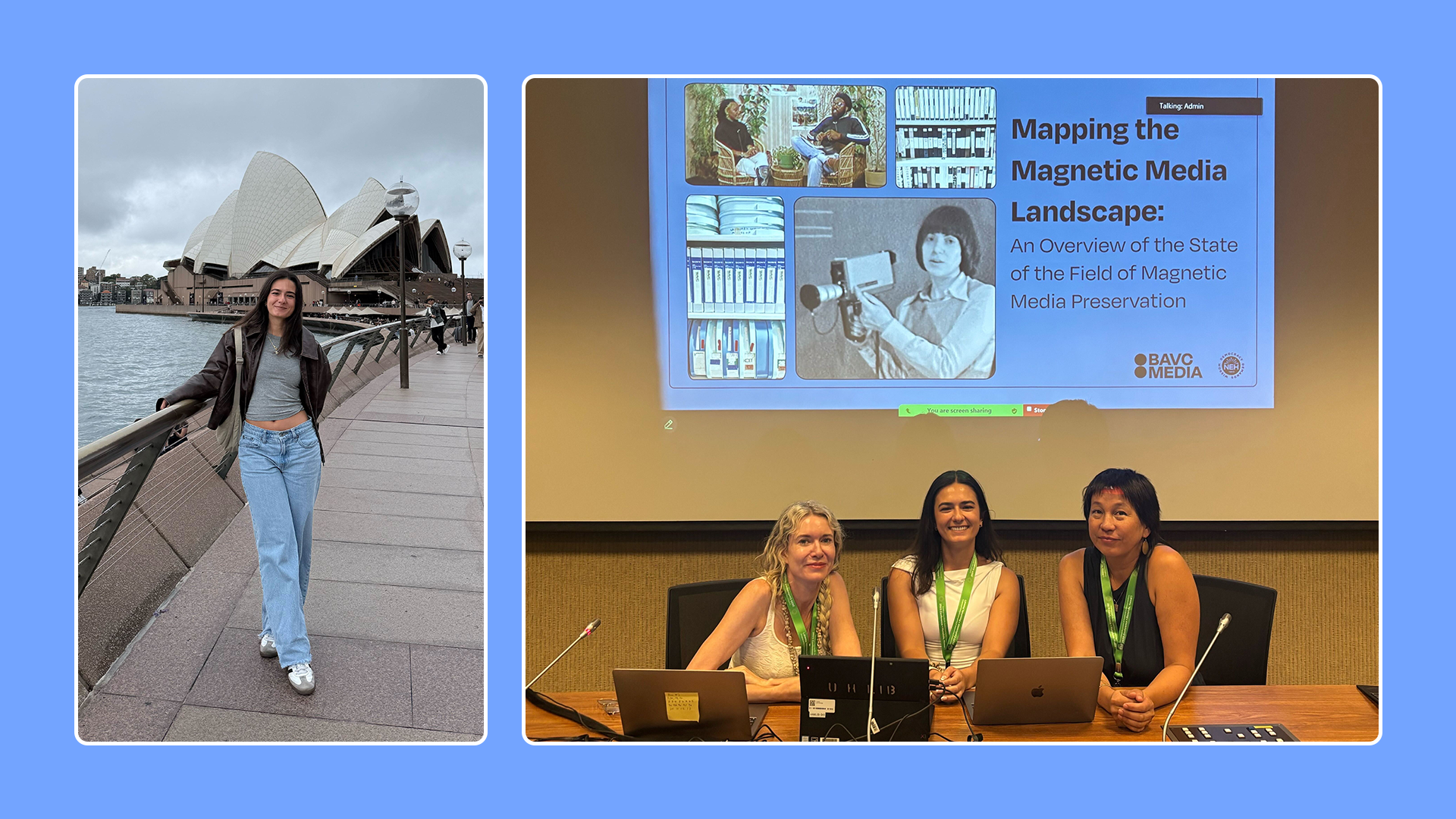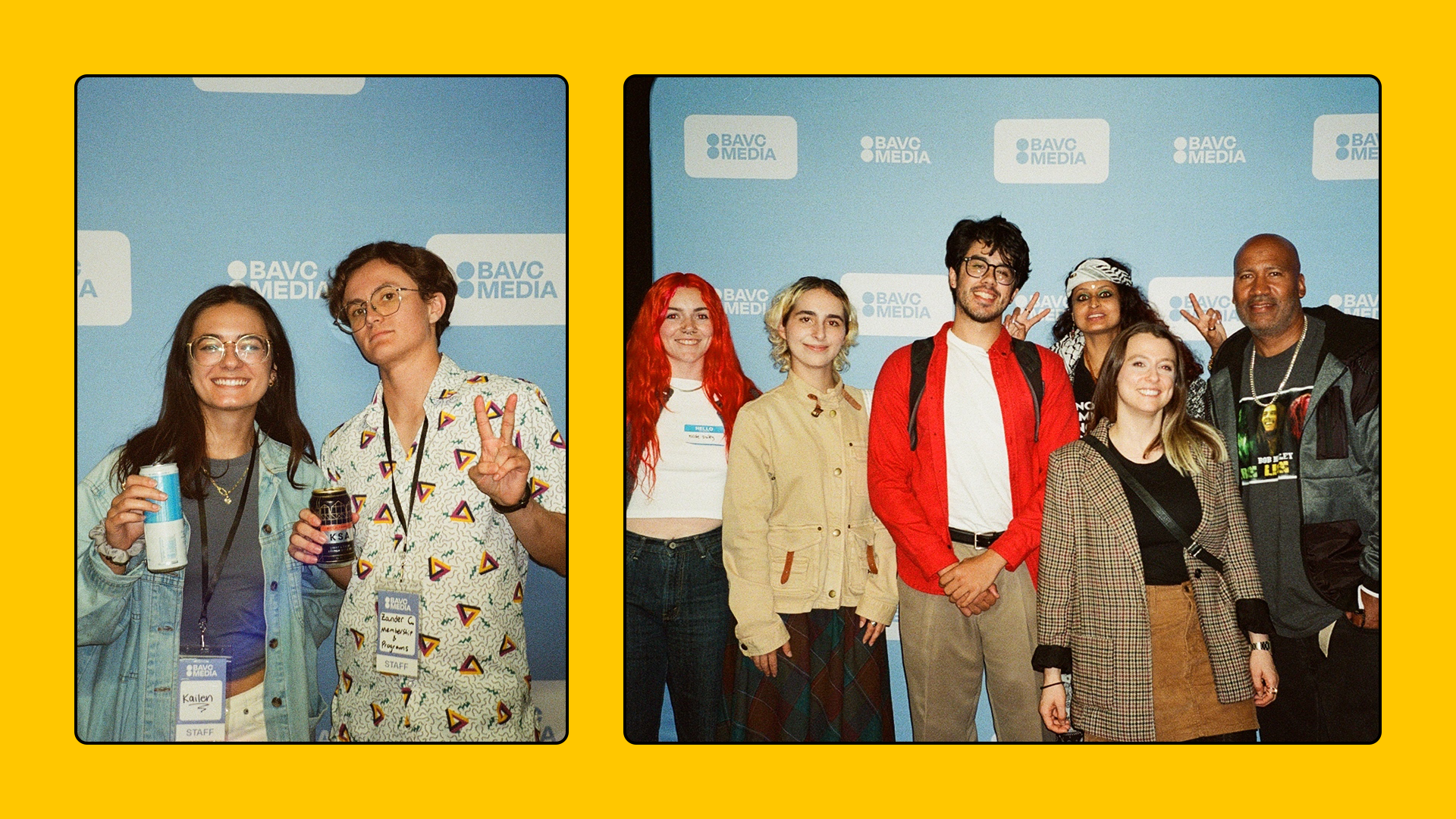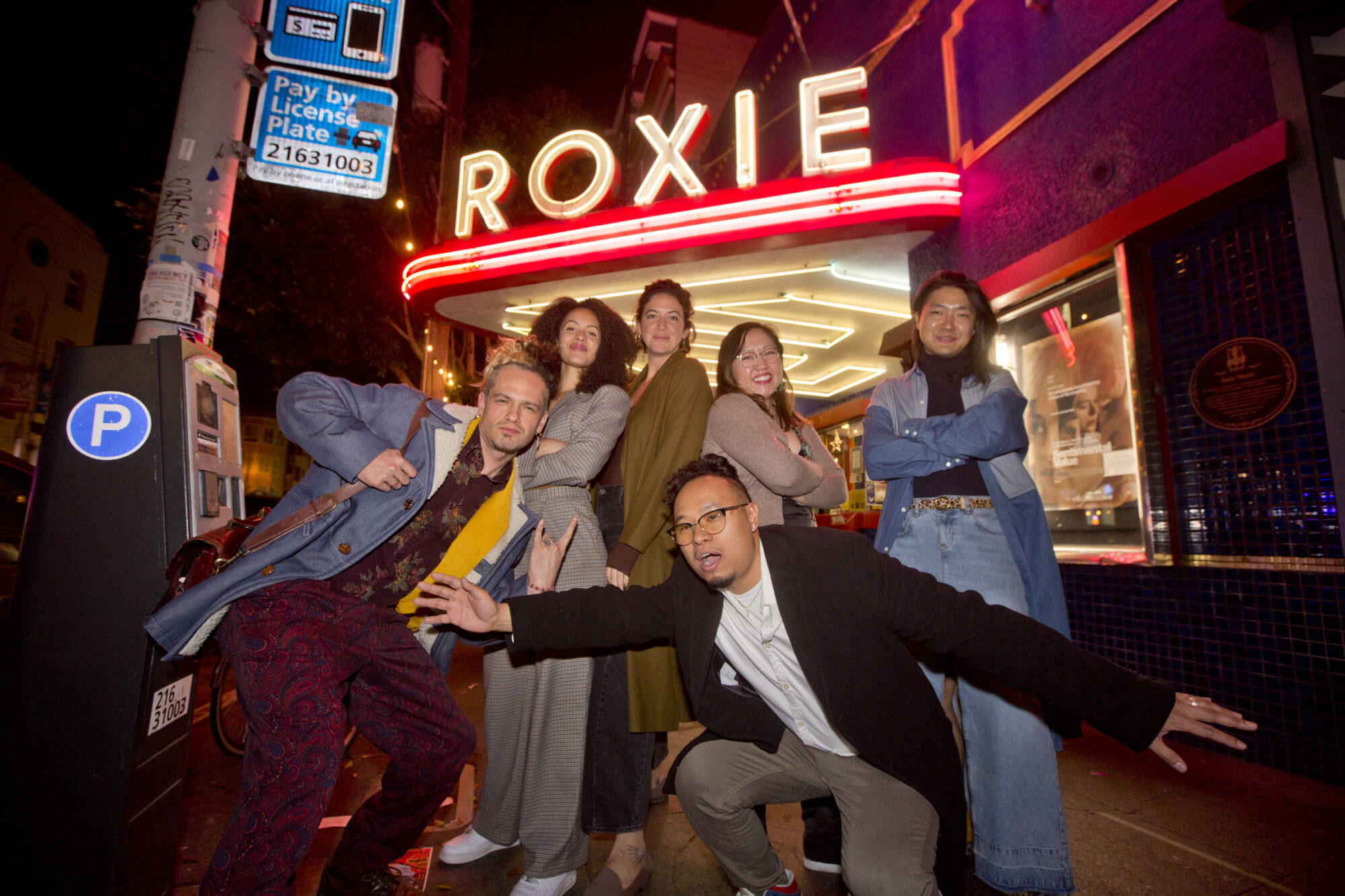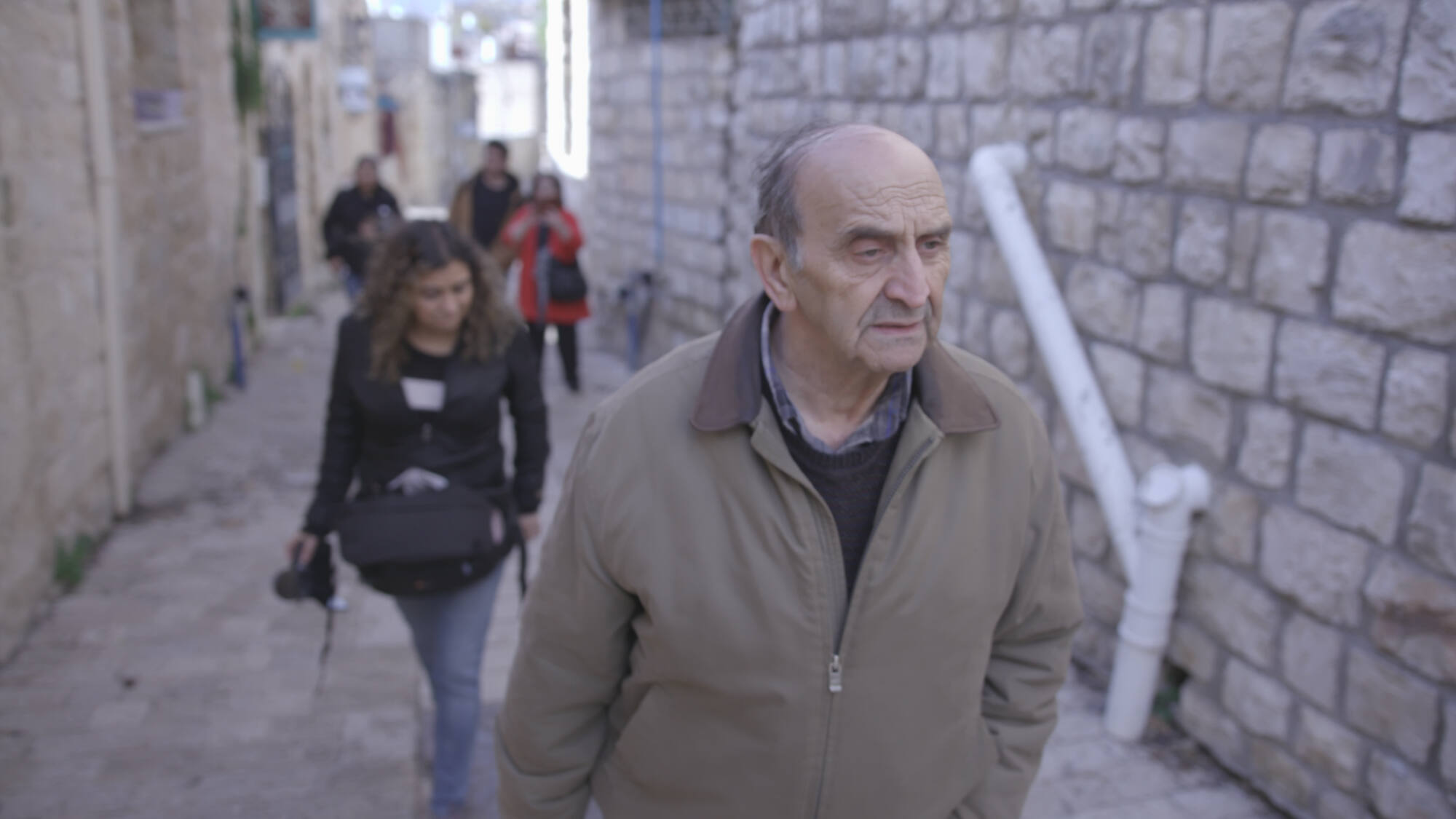From The BAVC Media Archives: Remembering Loni Ding
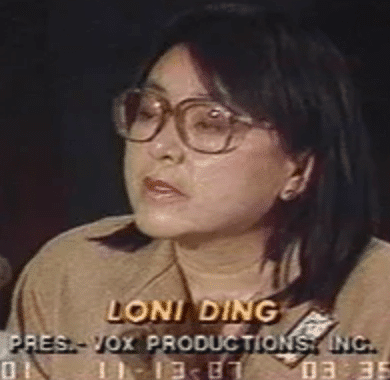
This piece was originally written by Moriah Ulinskas (former Preservation Program Director, and former Director of Next Gen Programs at BAVC Media) in February 2010.
This morning I received news that Loni Ding passed away on February 20 after a long year following a stroke last Spring. I hadn’t seen or spoken to Loni since before the stroke, and hearing that she had passed triggered a string of memories that left me crying at my desk for the first hour of the day. I’ve spent the morning emailing back and forth with my friend Alison Wong, who, along with myself, was one of Loni’s assistants on the Ancestors in the Americas series back when Ali and I were both just kids, fresh out of college, eagerly entering the world of documentary filmmaking. Ali wrote to me today, “she symbolizes a really special and important time in my life when I was discovering myself and what I wanted out of life”, and I think that aptly summarizes the impact Loni had on many Bay Area filmmakers.
I came to BAVC Media in the Fall of 1997 as an intern and Loni was a regular at the old facility on Mississippi Street. I remember clearly the day I overheard someone saying to my supervisor that they needed an assistant on a film project. I peered over the divider, told the small smiling woman on the other side that I was interested, and printed my resume on the spot. The next day I rode the bus up Van Ness Avenue and walked the hill to her Washington Street home where I would soon be schooled in social documentary, Asian American history, and how to butcher a chicken.
Loni will forever be remembered for her advocacy work as one of the founders of the National Asian American Telecommunications Association (NAATA) — now the Center for Asian American Media — as a spearhead of the Ethnic Studies Department at Cal, and for the influence which her film, Nisei Soldier, had on Congress’ decision to redress the Japanese- American internment during WWII. I will forever remember Loni as something of a whirling dervish spinning across the two front rooms set aside in her family’s home for her production studio- simultaneously fielding phone calls from funders, reviewing interviews for the Ancestors series, and mothering over her husband and children. It was the year impeachment proceedings were brought against President Clinton and one night Loni dragged the TV from the living room, the butcher block from the kitchen, and proceeded to butcher a chicken next to me so she could watch one of Clinton’s defenses and talk me through some of the footage I was reviewing and still get dinner on the table.
For Loni there was no clear distinction between the personal and professional- she committed herself wholeheartedly to her family, her teaching, her filmmaking and her advocacy work in a way that boundaries blurred. Her children would often walk across the frame of footage I was digitizing from one of her shoots in China, her home was an office for her staff as well as a meeting site for her husband David’s union gatherings, and her heart was a resting place for the many filmmakers she mentored. Loni was both incredibly soft and incredibly hard. I remember coming out of a screening at the Castro with her one night and as I lit up a cigarette (American Spirit) she took it from me, took a drag then ground it under her heel announcing, “You think it’s better to smoke these organic cigarettes? Smoking one of those things is like trying to smoke a loaf of whole wheat bread”. She was hyper and erratic and Ali and I often just found her HYSTERICAL. I remember being in the narration booth, here at BAVC Media, and she actually was able to get Pat Morita, from Happy Days, to do the voice over for her film. She kept stopping him during the recording sessions because she didn’t think he sounded enough like the Pat Morita she wanted on the voice over, so she actually did an imitation OF him TO him for him to copy. We were laughing on the other side of the glass watching her bust into the sound proof booth to tell him over and over what he should sound like, this Chinese American woman imitating this Japanese American man…
Things I will remember Loni by: taking us wine tasting while on a shoot in Napa then declaring it “crew nap time” and going to sleep under a tree, getting me pretty much banned from the Bancroft library for losing books I’d checked out for her (which I’m sure are still in stacks somewhere in her home), and teaching me how to butcher a chicken while logging a video.
I pulled up the intro that we recorded at BAVC Media, to try to remember what the line was that Loni kept reciting to Pat Morita that had us in stitches. I didn’t find it, but I was moved to hear Mr. Morita, also passed now, read Loni’s elegantly written opening lines, “What is history when the reporter does not record and the camera does not see?” Loni dedicated her life’s work to addressing this question, by producing films and fostering filmmakers and institutions that would force the camera to see. And for that, and for many other moments of grace and inspiration, we are eternally grateful.
Rest in peace, Loni Ding.
Read more about Loni Ding on the Center for Social Media blog
A copy of this blog post can be found on the Deep Dish Waves of Change blog
